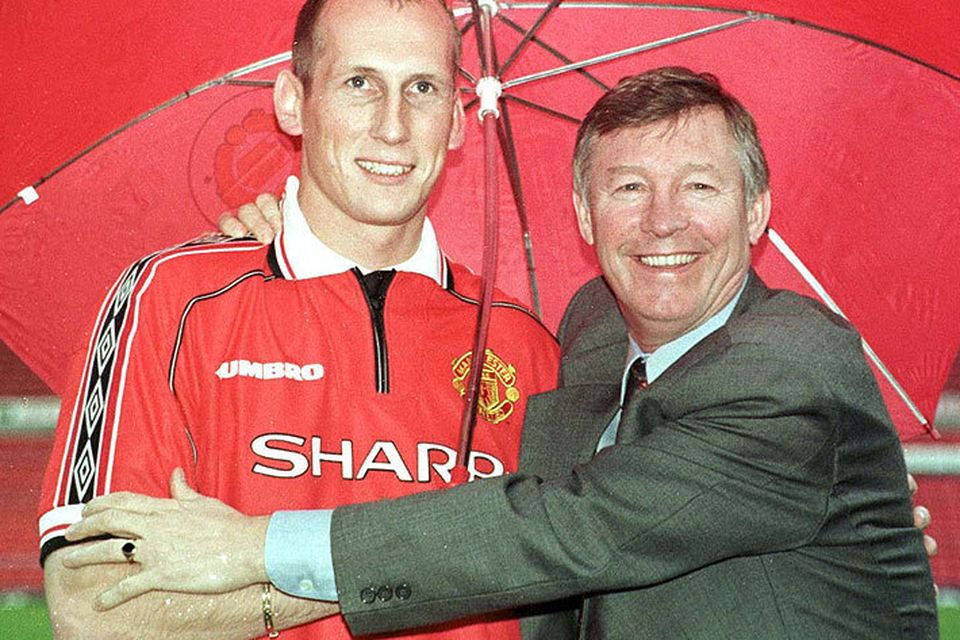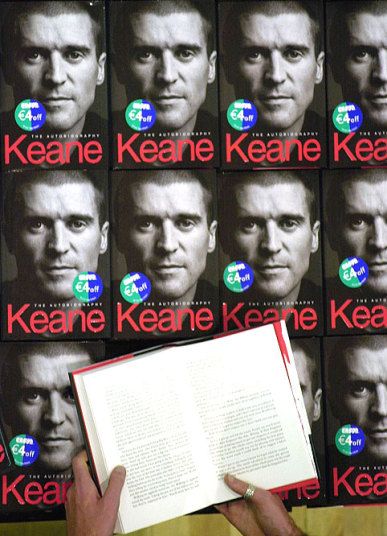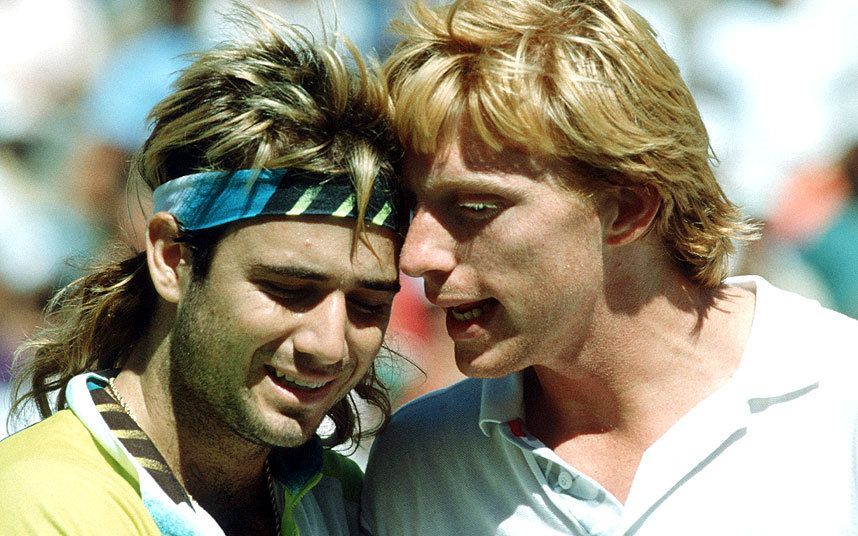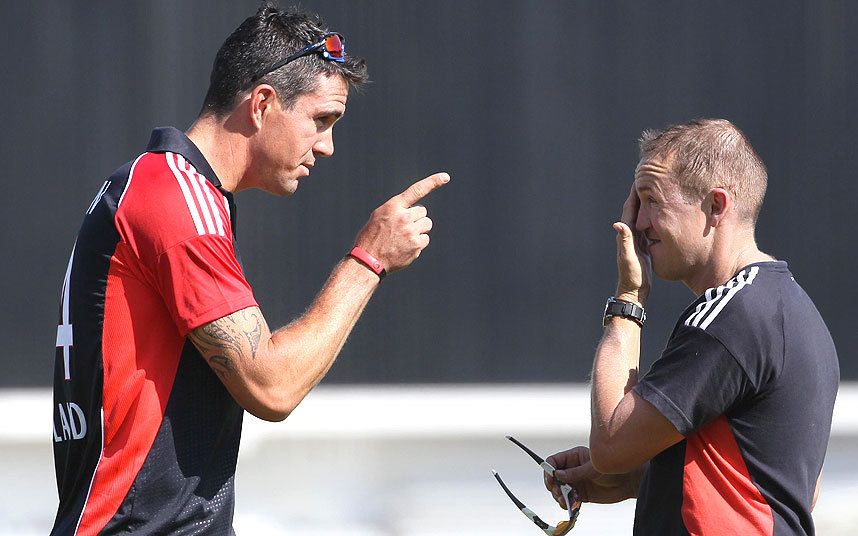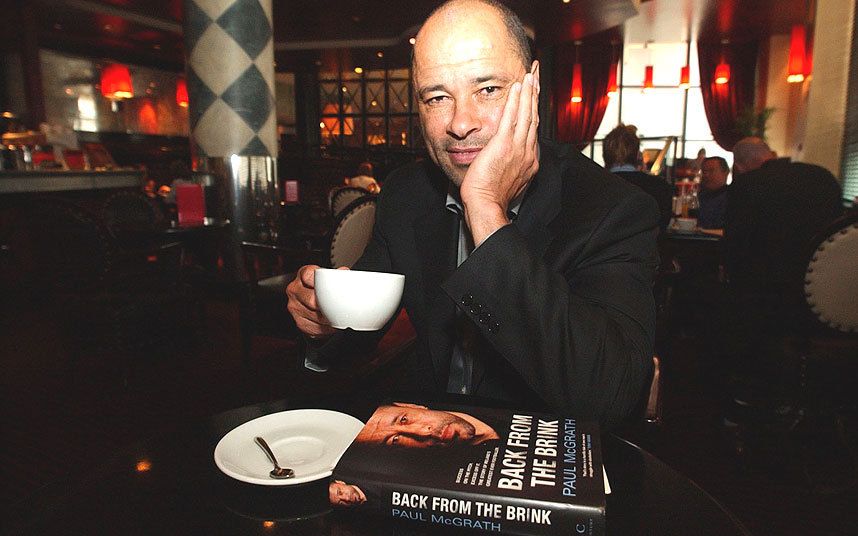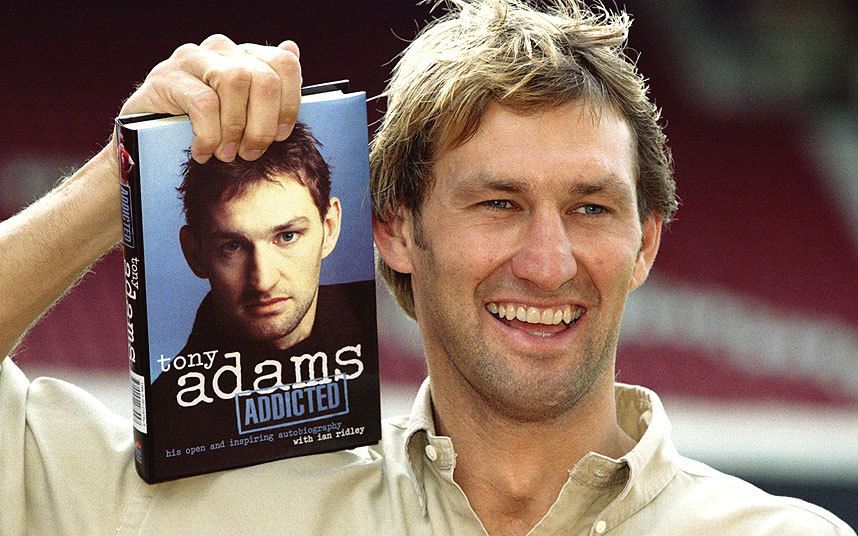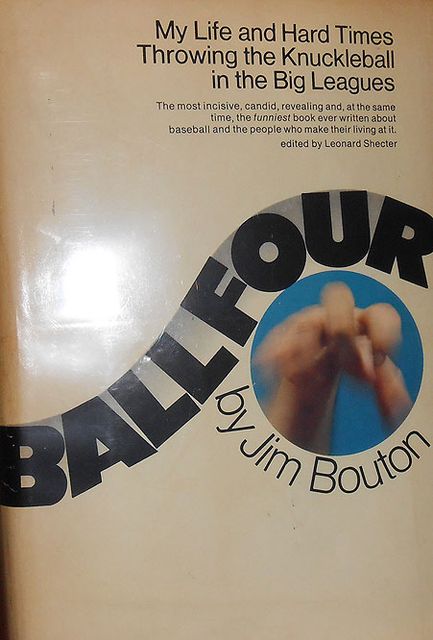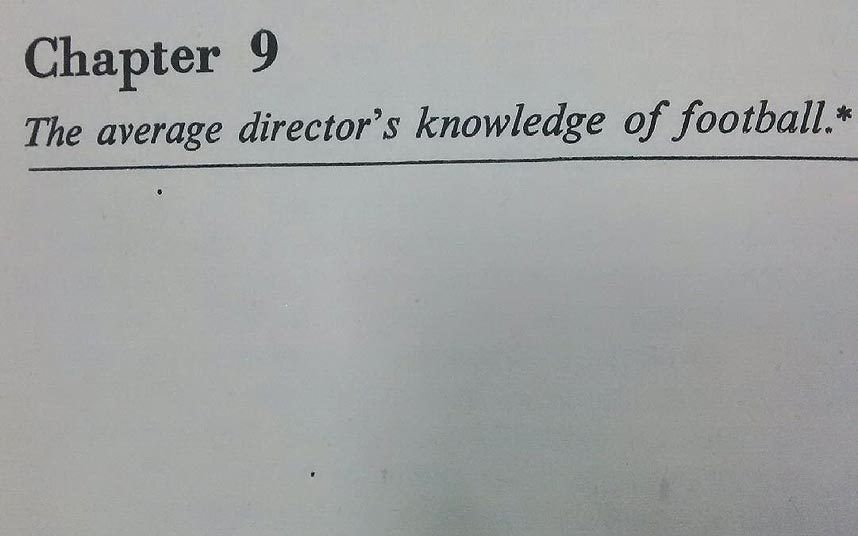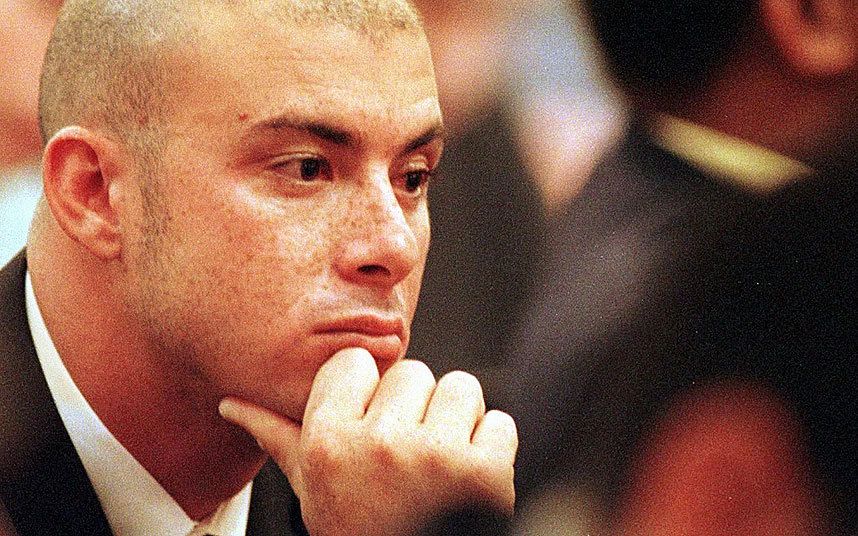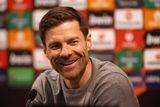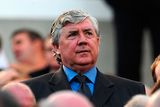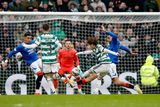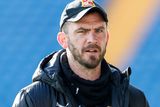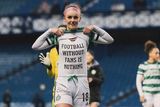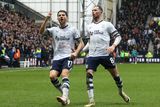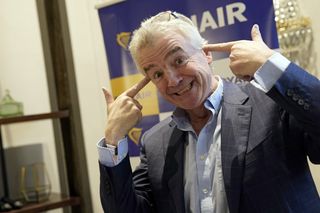Top 10 controversial sports autobiographies
Jaap Stam's time at Manchester United ended when Alex Ferguson sold him to Lazio in 2002
Roy Keane's latest book isn't the first sports autobiography to cause a stir. Here are 10 others that courted controversy.
Keane: The Autobiography by Roy Keane with Eamon Dunphy, 2002
Mistaking brusqueness for candour and acerbity for sincerity, Roy Keane portrayed himself as a joyless martinet for whom no one’s standards could ever match his own.
The two big set-pieces – the Saipan severance of his shaky relationship with Mick McCarthy and his Republic of Ireland team-mates in astonishingly incendiary detail and his ‘revenge’ scything of Alf Inge Haaland – dominated the extracts but behind the sensation were troubling glimpses into Keane’s soul.
What he allowed to emerge was a depiction of a character consumed by rage, coldness and an absence of compassion. It was a confection, only partially true, that suited his self-image at the time, the little boy in the Emperor’s New Clothes pointing out not only that his sovereign was stark b------ naked but anyone who had not seen it too was a useless ----. His new autobiography published this month offers a more rounded Keane.
In brief: Sweary, sweary, quite contrary.
Open by Andre Agassi and JR Moehringer, 2009
Andre Agassi was not the first grand slam title winner to have a driven, despotic parent but Mike Agassi does deserve a special place among his peers for his callous disregard for his child’s happiness.
The relentless drilling of the pre-school boy’s technique justifiably left a lingering resentment against his father and the game at which he excelled. Agassi’s use of crystal meth during his mid-career lull in 1997, the revelation that the ridiculous, mullet hairstyle of his early years was an intricate toupee designed to cover his Trappist tonsure, his hatred for Boris Becker and disdain for Jimmy Connors earned the book its early notoriety.
Away from the lurid disclosures, when Agassi is more concerned with informing than scandalising his readers, there is much to commend it.
In brief: Crystal clear.
KP: The Autobiography by Kevin Pietersen with David Walsh, 2014
Score-settling on an epic scale as Kevin Pietersen takes a point-by-point approach to rebutting the allegations that his actions and words were detrimental to the England team’s spirit and turns the tables on his accusers.
He argues that the dressing room had been perverted by the head coach’s obsession with leaving a legacy and that bullying, orchestrated by a clique but tolerated by captain and coach, was common. It is largely joyless, as most avowals of innocence when the author perceives himself to be a victim of a miscarriage of justice can be, but the light it sheds on the England team and the way it confirms certain impressions make for compelling reading.
He is Samson in the Temple of Dagon summoning all his forces to take his enemies with him.
In brief: Vengeance is mine.
Back from the Brink: The Autobiography by Paul McGrath and Vincent Hogan, 2006
Paul McGrath’s alcoholism was no secret even beyond footballing circles but the extent of the childhood traumas that fostered the chronic insecurity and self-loathing that made him seek refuge in oblivion was not widely known.
It was reviewed as a “misery memoir” because fears for his sobriety persist after finishing it, but that does it a disservice. In terms of truly shocking revelations – of a troubled soul helplessly drawn to looking for solace in the bottle, childhood abandonment, racial discrimination, reckless escapades in cars and in pursuit of women, disregard for his talent, suicide attempts, multiple vanishing acts and lacerating self-criticism – it is like no other.
In brief: Nowhere to run.
Rough Ride: An Insight into pro cycling by Paul Kimmage, 1990
Paul Kimmage
A young, former professional cyclist exposes the truth behind road racing, that doping was widespread, not quite mandatory but encouraged by teams.
It is the work of an idealist, disgusted by what he experiences as his belief in the purity of his sport is destroyed by compromise and cynicism and officials turn blind eyes to cheating. It deserves its praise for breaking the omertà of pro cycling though he spent many years being called a ‘liar’ by those with interests to protect.
More rewarding but less significant in terms of headlines are Kimmage’s raw descriptions of elite cycling’s debilitating physical and psychological tolls.
In brief: An inconvenient truth.
Addicted by Tony Adams with Ian Ridley, 1998
Addicted, by Tony Adams, was released in 1998.
A book that would have been inconceivable without Tony Adams’ treatment for alcohol addiction, the revelations of his degradation as his drinking and marriage spiralled towards the abyss have a masochistic quality, perhaps essential for therapy and his search for truth, but make for harrowing reading.
Adams wrote that the book and his recovery were quests for enlightenment after conquering his compulsions and he offers insights aplenty into the troubles young, successful players have adapting to fame, the way footballers become commodities to clubs, his spell in prison for drink-driving, George Graham’s ruthlessness and Glenn Hoddle’s gaucheness.
In brief: The beast in me.
Ball Four by Jim Bouton, 1970
Ostensibly a Major League Baseball pitcher’s diary of the 1969 season, the book takes in the career of Bouton, then with the Seattle Pilots and Houston Astros, focusing on his seven seasons as a New York Yankee.
For the first time the locker-room culture of the game was exposed to the public without varnish or omissions and the players’ predilections for amphetamines, booze and extra-marital sex on road trips were so shocking that the sport’s commissioner called the book “detrimental to baseball”.
Yet it remains in print 44 years on. Not so much for the scandal that first made it a bestseller but for its wit and candid insights into the professional sportsman’s anxieties.
In brief: What happens on tour … goes in the book.
Clown Prince of Soccer by Len Shackleton with David Jack, 1955
The original. More famous for a blank chapter which offended the pompous – 9: The average director’s knowledge of football – than the other 18, Clown Prince of Soccer hits several authority figures squarely on the chin.
The mercurial Sunderland inside-forward lambasts Arsenal for patronising him as a teenager before the Second World War, Newcastle United’s miserliness, the Football Association and Football League’s short-sightedness in its continued opposition to football pool business, the maximum wage, Neanderthal coaching, the England selectors’ antipathy to individual brilliance and obsession with conformity.
It is impish, colourful, impassioned and full of arrogant maverick flair, causing a stir when it came out from his targets whose attempt to dismiss him as a ‘stupid’ mercenary failed while the blank page became one of the game’s iconic images.
In brief: Shack attack.
Head to Head by Jaap Stam and Jeremy Butler, 2001
Jaap Stam's time at Manchester United ended when Alex Ferguson sold him to Lazio in 2002
Sir Alex Ferguson always maintained that Stam’s autobiography was not the reason he sold the dreadnought centre-half to Lazio weeks after its serialisation in 2001, but there is no doubt that the Manchester United manager was displeased by allegations that the club had tapped the player up before signing him from PSV Eindhoven.
Stam also infamously characterised the Neville brothers as garrulous, moaning bores - “busy -----” – said that his team-mates had been told to dive in Champions League matches, questioned David Beckham’s intelligence and Patrick Vieira’s courage.
Stam was in Rome before his autobiography had hit most bookshops, a decision Ferguson later said he regretted.
In brief: Head to the exit.
To the Point by Herschelle Gibbs and Steve Smith, 2010
Herschelle Gibbs played 90 Tests for South Africa and averaged more than 40 but he will be remembered as much for his dropping of Steve Waugh in the 1999 World Cup and for being one of the players who allowed himself to be corrupted by his captain, Hansie Cronje.
Less well known, outside his homeland, is Gibbs’ reputation as a playboy, a hard drinker and carouser who was, to say the least, hyperactive sexually. The book feels as though it is floating in alcohol and testosterone, with Gibbs cheerily reminiscing on his bedroom conquests with juvenile glee as if he were a sixth-form Don Juan.
In brief: The secrets of my success.
Telegraph.co.uk
